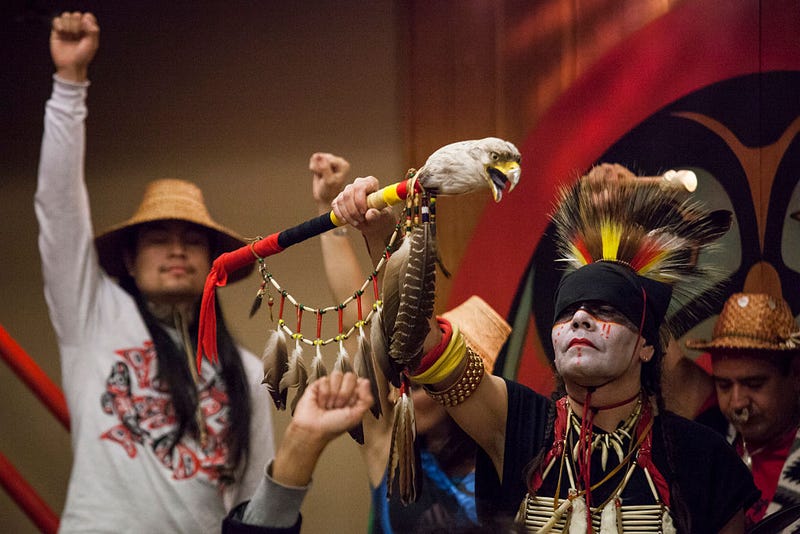
Today is Indigenous Peoples' Day, but it's only the second year that the day has held the designation.
What is Indigenous Peoples' Day, why do we recognize it, and what happened to Columbus Day? Here's everything you need to know.
The federal holiday is officially observed on the second Monday in October. In 2021, President Joe Biden signed the first presidential proclamation of Indigenous Peoples' Day to honor American Indians, Alaska Natives and Native Hawaiians.
The day "celebrates the invaluable contributions and resilience of Indigenous peoples, recognizes their inherent sovereignty, and commits to honoring the Federal Government’s trust and treaty obligations to Tribal Nations," according to the proclamation.
President Biden explained that "the Federal Government has a solemn obligation to lift up and invest in the future of Indigenous people and empower Tribal Nations to govern their own communities and make their own decisions. We must never forget the centuries-long campaign of violence, displacement, assimilation, and terror wrought upon Native communities and Tribal Nations throughout our country."
While remembering their storied histories, the day is also meant to honor America's first inhabitants and the Tribal Nations that continue to thrive today. You can do that by recognizing and celebrating the many Indigenous communities and cultures that make up our nation.
Indigenous Peoples' Day shares a date with Columbus Day, which has been a federal holiday since 1934. The day commemorates Italian explorer Christopher Columbus' historic voyage in 1492 when he "discovered" the Americas, a land that was already inhabited by millions of people.
Columbus is a deeply-polarizing figure in our country's history and a symbol of pain and oppression to many people, especially indigenous community members. While some argue that the day honors the legacy of Italian immigrants and the nation we know today, others believe it glorifies a colonizer who forcefully took land and set the stage for widespread death and loss of indigenous ways of life, according to The Conversation.
The same year President Biden declared Indigenous Peoples' Day as a federal holiday, he also issued a proclamation on Columbus Day to recognize "America's spirit of exploration (and) the courage and contributions of Italian Americans throughout the generations," while remembering the violence and harm explorers brought upon Native communities.
"(We) acknowledge the painful history of wrongs and atrocities that many European explorers inflicted on Tribal Nations and Indigenous communities," Biden said. "For Native Americans, western exploration ushered in a wave of devastation: violence perpetrated against Native communities, displacement and theft of Tribal homelands, the introduction and spread of disease, and more. On this day, we recognize this painful past and recommit ourselves to investing in Native communities, upholding our solemn and sacred commitments to Tribal sovereignty, and pursuing a brighter future centered on dignity, respect, justice, and opportunity for all people."
The idea of celebrating Indigenous Peoples Day took root in 1977 at an international conference on discrimination sponsored by the United Nations, USA Today reported. Decades later, in 1990, officials began discussions about replacing Columbus Day with Indigenous Peoples Day. Again, decades later, the National Congress of American Indians in 2011 formally called on the U.S. to change Columbus Day to Indigenous Peoples Day.
South Dakota was the first state to honor Indigenous Peoples Day in place of Columbus Day in 1989, The Oklahoman reported. More than two dozen states have their own versions of the day, though some celebrate the occasion on an entirely different date than Columbus Day. More than 100 cities also have proclamations or resolutions that recognize Indigenous Peoples Day.
LISTEN on the Audacy App
Sign Up and Follow Audacy
Facebook | Twitter | Instagram
